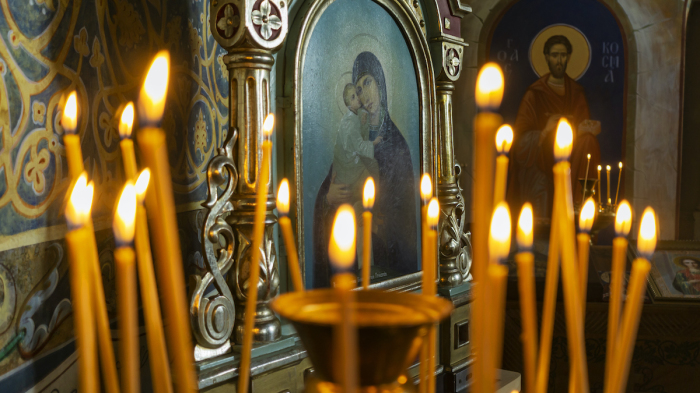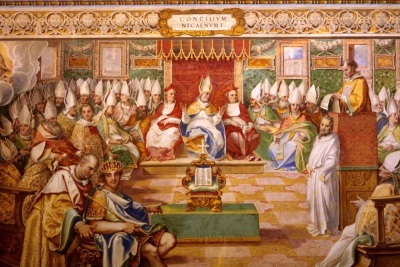Lutherans, Orthodox Church reach agreement on 1,000-year debate over Nicene Creed

The Lutheran World Federation and the Orthodox Church have announced an agreement on the debate over the “Filioque” clause of the Nicene Creed, which prompted the schism between Western and Eastern churches over 1,000 years ago.
Meaning “and the Son” in Latin, Filioque was added to the Nicene Creed during the Medieval Era to make the statement of faith say that the Holy Spirit proceeded from both God the Father and the Son.
The dispute over whether the Holy Spirit proceeded from both personages of the Trinity helped lead to the Great Schism of 1054, which split Christianity into a Western Church and Eastern Church.
In a joint statement released Tuesday, the LWF and Orthodox leaders explained that they agreed to “suggest that the translation of the Greek original (without the Filioque) be used in the hope that this will contribute to the healing of age-old divisions between our communities and enable us to confess together the faith of the Ecumenical Councils of Nicæa (325) and Constantinople (381).”
“Renewed focus on the original wording of the Nicene-Constantinopolitan Creed may encourage renewed theological reflection on the Trinity and the role of the Holy Spirit,” they continued.
“Moreover, we both affirm that in our Trinitarian doctrine the Father is the cause (αἴτiος) of the generation of the Son and of the procession of the Spirit.”

Also known as the Common Statement of the Joint International Commission on Theological Dialogue between the LWF and the Orthodox Church, the statement is the byproduct of 40 years of dialogue between the two denominational bodies.
LWF and the Orthodox leaders also view the Common Statement as “a sign of reconciliation” in advance of 2025, which will mark the 1,700 anniversary of when the Council of Nicaea took place.
Named after Nicaea, an ancient city located in modern-day Turkey, the Nicene Creed was originally written in 325 and later revised at the Council of Constantinople in 381.
The creed was formulated in response to Arianism, an early church heresy that claimed, among other things, that God the Father created Jesus and thus were not coequal as a part of the Trinity.
The filioque clause was first reportedly added to the Nicene Creed at the Third Council of Toledo in 589, as a way to further emphasize the equality of God the Father and God the Son.
However, many Eastern churches took issue with the phrasing, believing that it did not properly reflect the relationship between the three Persons of the Holy Trinity. This, along with concerns over the power that the bishop of Rome was attempting to exert over other regional bodies, led to the Great Schism of 1054.
In 1999, the LWF signed an agreement with the Roman Catholic Church known as the "Joint Declaration on the Doctrine of Justification," which sought to resolve theological differences between the two bodies over the nature of justification by faith.
Later signed by representatives of the World Communion of Reformed Churches in 2017, the Joint Declaration said that Catholics and Protestants "are now able to articulate a common understanding of our justification by God's grace through faith in Christ."
"It does not cover all that either church teaches about justification; it does encompass a consensus on basic truths of the doctrine of justification and shows that the remaining differences in its explication are no longer the occasion for doctrinal condemnations," stated the declaration, in part.
The LWF was founded in 1947 and is based in Geneva, Sweden. It has a reported 150 member churches in nearly 100 countries, representing more than 77 million Lutherans.





























